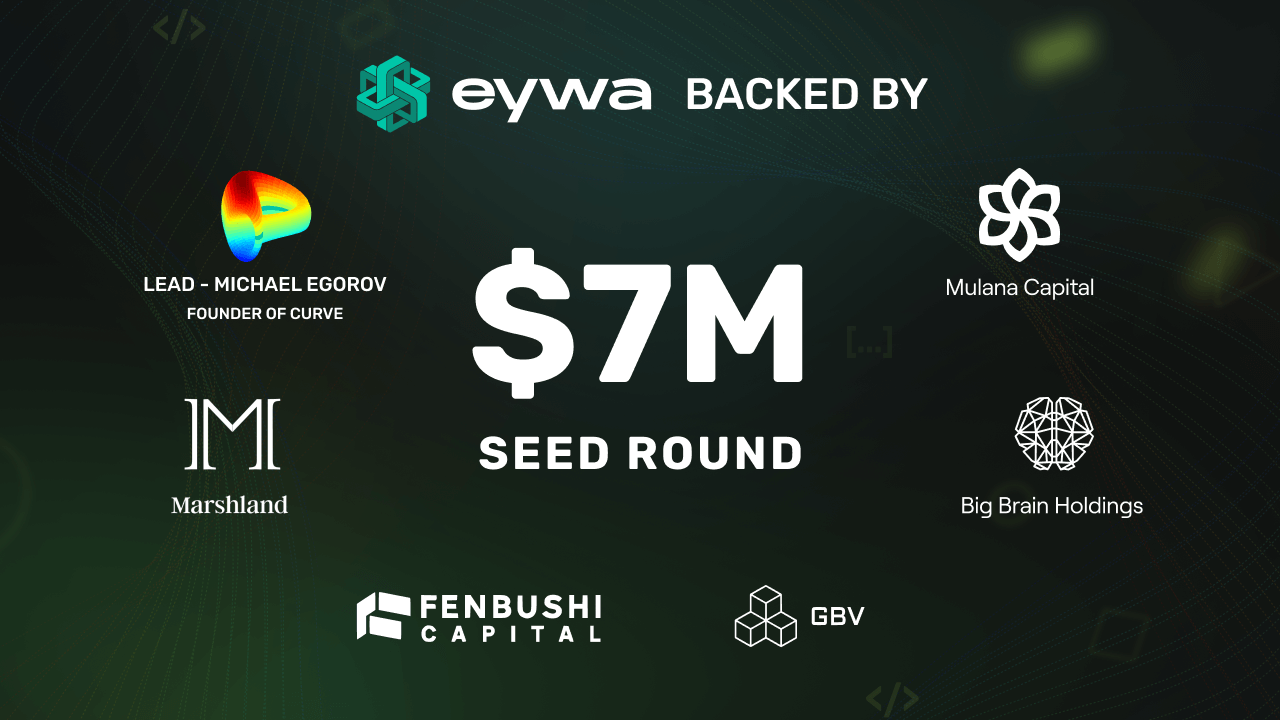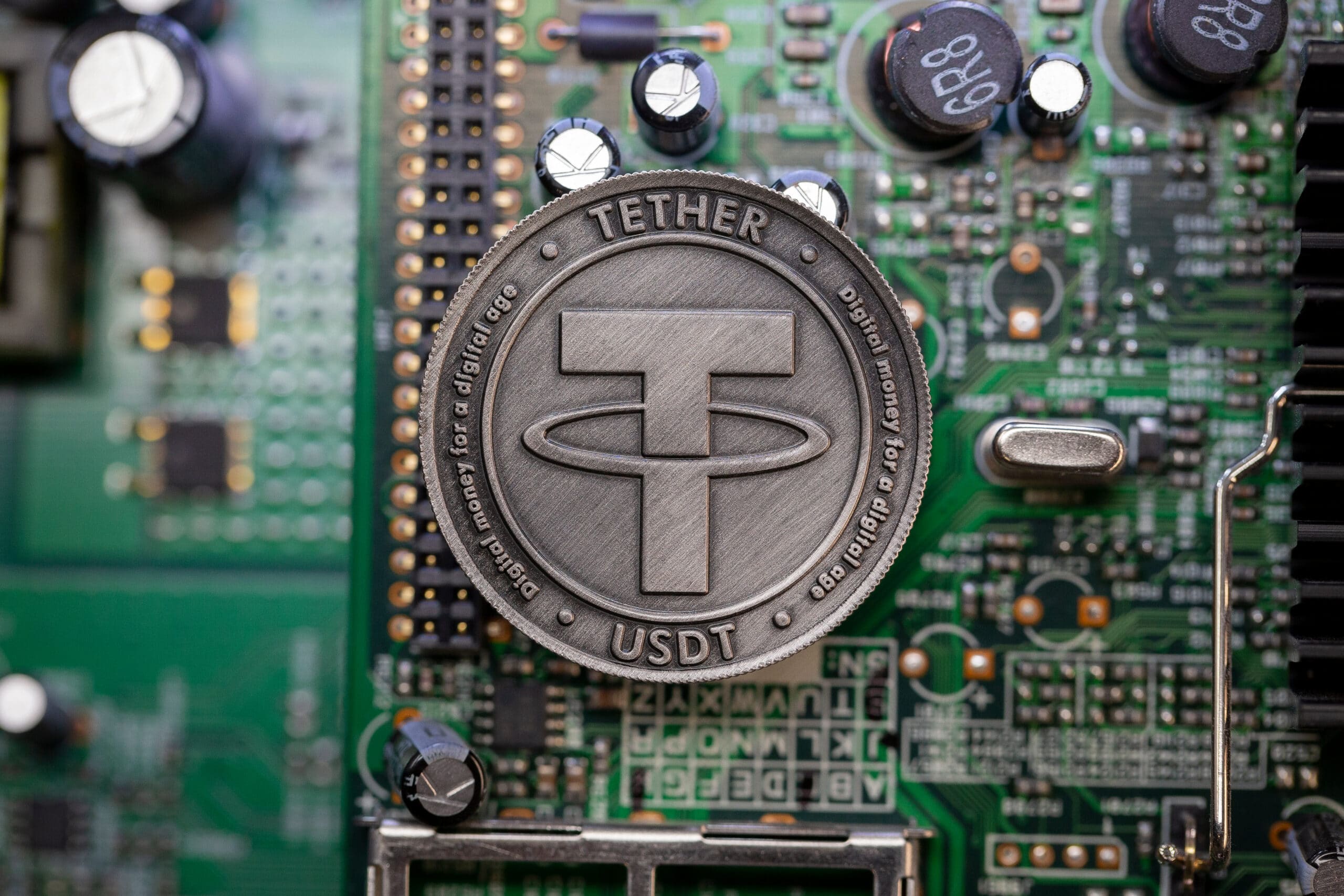DL News • May 02, 24
‘Stars are aligning’ for renewed Bitcoin gains, says hedge fund
Between a relatively dovish Federal Reserve, recovering yen, and dropping oil and commodity prices, Bitcoin is ready to push higher.
Read more



Create a Coinbase account to buy and sell Litentry on the most secure crypto exchange.
LIT is the native token of the Litentry parachain network. Litentry is a Decentralized Identity Aggregator, supporting on-chain identity verification and management for decentralized applications and their users.
Litentry (LIT) is a decentralized identity aggregation oracle that strives to enhance the management and authentication of identities across blockchains. Constructed on the Substrate framework, it is tailored for Polkadot, EVM-based platforms, and other multi-chain ecosystems. Litentry utilizes Trusted Execution Environments (TEE), verifiable credentials, and customizable score computation to initiate a new era of digital identity. Its flagship product, the IdentityHub, aims to transform how identities are managed across blockchains. Litentry's approach to identity is user-centric, bridging both Web2 and Web3, and provides a comprehensive suite for user activity and identity data management.
Litentry operates by enabling users to link their identities in a privacy-preserving context. It strives to give users full control over their personal data and enable them to gain social and economic value from it. The protocol can be adopted in on-chain reputation, governance, DeFi, and customized data services. Litentry's infrastructure, where identity data progresses from a disordered and scattered state to a structured state, consists of three core layers that create a verifiable, privacy-enhancing identity computation process. These layers include the source data layer, address analysis layer, and identity aggregation layer. The functionality of the Litentry protocol is divided into three main stages: linking sensitive identities, generating scores and credentials, and issuance of verifiable credentials.
Litentry's identity aggregation and privatized verifiable credentials can be useful in several situations. These include airdrop whitelisting, audience selection & community insights, soulbound tokens or NFTs, Web3 native job markets, credit scores, and cross-platform reputation. For instance, the Litentry identity verification system allows crypto projects to identify and filter out low-quality engagement in an airdrop. Additionally, decentralized identities allow communities and projects to gain a better understanding of their audience and reward them for sharing their pseudonymous identity data.
Litentry was founded by Hanwen Cheng, a former Software Engineer at Parity. While working on a Signer project at Parity, he realized the need for an interoperable identity system and started a side project, which eventually became Litentry. In 2019, after building his team and taking the project more seriously, Litentry began its journey: they received a grant from the Web3 Foundation, then significant funding from FBG, Candaq, Hypersphere, Signum, Altonomy, and other crypto VCs. The team also strives to be listed on major exchanges.
Identity aggregation is a process that involves gathering and summarizing data about identities and their access from various systems. This concept is important in the field of decentralized identity management, where it's utilized to create a consolidated view of an individual's identity across multiple platforms. In the context of cryptocurrency and blockchain technology, identity aggregation can be used to bring together a user's identity information from various blockchain networks, creating a unified and consolidated identity profile. This process is facilitated by tasks that read the data into the system and correlate it to identities stored within. The concept of identity aggregation is relevant to certain projects within the decentralized identity management space, which strive to offer improvements in the transparency and efficiency of identity verification.
Litentry is dedicated to user data privacy and security within its identity management system. It incorporates privacy into its services from the beginning. Litentry utilizes a Trusted Execution Environment (TEE) for practical usage, development cost, scalability, and general purpose of confidential computation. TEEs provide a protected area within the CPU, ensuring data privacy and integrity. They are particularly useful in scenarios like secure data transactions or confidential communications. In addition, Litentry's identity hub aims to consolidate and protect disparate digital footprints. The platform provides tools to enhance the security of daily online interactions. This system strives to protect you from potential digital threats. Your digital identity contains sensitive personal and data information. Litentry's system intends to protect sensitive digital information.
Litentry distinguishes itself in the realm of decentralized identity (DID) through its unique approach of identity aggregation. Unlike other blockchain projects that focus on single, isolated identities, Litentry aims to create an aggregated identity picture by combining fragmented identities. This aggregated DID fully complies with W3C DID standards and seeks to address the challenge of isolated ID registration systems. In addition, Litentry's protocol provides a decentralized, interoperable identity aggregation service that aims to mitigate the difficulty of resolving agnostic DID mechanisms. This allows users to manage their identities and decentralized applications (dApps) to obtain real-time credit or reputation of an identity owner across different blockchains. This approach strives to give users control over their personal data and facilitate dApps in accessing and utilizing identity data.
Litentry handles the verification process for identity-related data through a combination of identity linking, trusted execution environments (TEEs), data indexers, and verifiable credentials. Initially, a user demonstrates ownership of their various Web2 and Web3 accounts, which are then stored as an 'Identity Graph' within a TEE. This TEE is a secure area on a computer's processor, separate from the main operating system, aiming to protect sensitive data. Data indexers supply verifiable on-chain information to the TEE about the different accounts of the user, organizing the data to make it usable. This information then becomes the content of the credential. Finally, a verifiable credential is issued, functioning like an official letter, containing a subject and a claim about the subject. This credential is signed, encrypted, and anchored on-chain, serving as a source for verifying identity data.
Litentry (LIT) strives to combat identity theft and fraud by offering a decentralized identity aggregator that aims to provide a platform for users to manage and control their digital identities. It utilizes Trusted Execution Environments (TEE), which are separate areas on a computer's processor, distinct from the main operating system. These TEEs store and process data with complete integrity and aim to uphold data privacy from any possible external interference. Litentry also employs verifiable credentials, a new data standard that packages and repackages data content while adding cryptographic proofs and digital signatures of the subjects and issuers to the message. This allows for selective disclosure and maximum interoperability to bridge trust domains between organizations. By providing these closed environments or enclaves (TEEs) in which only the user has control over their data and sharing authorizations, Litentry aims to foster an environment conducive to trust.
Yes, Litentry (LIT) intends to explore possibilities beyond identity management. The project is considering integrating its decentralized identity solutions into the Bitcoin ecosystem, which could potentially allow users to verify their assets using their Bitcoin addresses. This move is part of the project's exploration of potential improvements to user interactions across various blockchain platforms. By incorporating Bitcoin, Litentry is undertaking a step towards exploring a broader scope of solutions for decentralized identity management. Litentry is also examining the use of Web3's privacy and safety features to create a potential decentralized identity system that respects privacy. This includes measures such as Self-sovereign Identity (SSI), Trusted Execution Environment (TEEs), Decentralized Identifiers (DIDs), Verifiable Credentials, AI-Driven Privacy Enhancements, and Zero-Knowledge Proofs (ZKPs). These measures are intended to explore potential enhancements to safety and mitigate against tampering with data.
Yes, Litentry (LIT) has engaged in several strategic partnerships related to its decentralized identity management services. One collaboration is with DWF Labs, a firm specializing in digital asset market-making and multi-stage Web3 investment. This partnership aims to explore new approaches in the decentralized identity management niche of the Web3 ecosystem, helping users aggregate their data and gain control over their identities. Another partnership is with NodeReal, a blockchain infrastructure provider. This collaboration aims to enable Web3 users and decentralized application (dApp) developers to utilize the features of Web3 without compromising user privacy. Litentry has also partnered with SPACE ID for a domain integration solution and Web3Go, an open platform for data analytics.
Earn free crypto after making your first purchase. Terms apply.

Sum of median estimated savings and rewards earned, per user in 2021 across multiple Coinbase programs (excluding sweepstakes). This amount includes fee waivers from Coinbase One (excluding the subscription cost), rewards from Coinbase Card, and staking rewards.
Market cap
R$205.1M
Volume (24h)
R$24.5M
Circulating supply
39.6M LIT
Typical hold time
11 days
Popularity
#663
All time high
R$75.30
Price change (1h)
-0.37%
Price change (1d)
+2.17%
Price change (1w)
-7.73%
Price change (2w)
+1.06%
Price change (1m)
-29.56%
Price change (1y)
-2.98%
DL News • May 02, 24
‘Stars are aligning’ for renewed Bitcoin gains, says hedge fund
Between a relatively dovish Federal Reserve, recovering yen, and dropping oil and commodity prices, Bitcoin is ready to push higher.
Read more

BeInCrypto • May 02, 24
Solana Launches Gaming API on Google Cloud
Solana Labs teams with Google Cloud, launching the GameShift API to simplify blockchain gaming development, aiming for mainstream adoption with easier tech integration.The post Solana Launches Gaming API on Google Cloud appeared first on BeInCrypto.
Read more

The Block • May 02, 24
Total number of Uniswap wallets more than doubles in the past year
The doubling comes as Uniswap surpassed a historic $2 trillion in cumulative trading volume in early April.
Read more

BeInCrypto • May 02, 24
Top VCs Join EYWA’s Seed Round Led by Curve’s Founder
EYWA, a consensus bridge that secures transactions across multiple protocols, has raised a total of $7 million as it delivers the new era of Web3 interoperability. The investment has been led by Curve Finance founder Michael Egorov — with the project recently attracting two new backers: Fenbushi ...
Read more

The Defiant • May 02, 24
Crypto Markets Bounce After Fed Leaves Interest Rates Unchanged
Bitcoin and Ether are up 4% in the past 24 hours, while Solana has surged 12%.
Read more

Unchained • May 02, 24
Tether’s Record $4.5 Billion Q1 Profit Highlights Its Dominance of the Stablecoin Industry
Tether’s record first-quarter profit is an indicator of its ongoing dominance, stablecoin experts say, keeping the stablecoin issuer in pole position as regulation attempts mount. Though Tether recorded a profit of $4.52 billion in the first quarter, with most of that coming from its gains on its...
Read more

A selection of conversions for different assets and currencies.

AVAX - CZK
Avalanche - Czech Koruna

SHDW - CUC
Shadow Token - Cuban Convertible Peso

MINA - QAR
Mina - Qatari Riyal

DOGE - GHS
Dogecoin - Ghanaian Cedi

SEI - SLL
Sei - Sierra Leonean Leone

ALGO - HRK
Algorand - Croatian Kuna

CGLD - ZAR
Celo - South African Rand

MEDIA - NAD
Media Network - Namibian Dollar

TIA - MZN
Celestia - Mozambican Metical

KSM - AOA
Kusama - Angolan Kwanza

OSMO - ILS
Osmosis - Israeli New Sheqel

PNG - AZN
Pangolin - Azerbaijani Manat
Assets with the biggest change in unique page views on coinbase.com over the past 24 hours.
A selection of cryptocurrencies in the top 50 by market cap.
A selection of the most recently added cryptocurrencies.
Of all the assets on Coinbase, these 12 are the closest to Litentry in market cap.
Here is a selection of spot and futures markets that people watch
9 unique individuals are talking about Litentry and it is ranked #1,753 in most mentions and activity from collected posts. In the last 24 hours, across all social media platforms, Litentry has an average sentiment score of 3 out of 5. Finally, Litentry is becoming more newsworthy, with 0 news articles published about Litentry. This is a 0% increase in news volume compared to yesterday.
On Twitter, people are mostly neutral about Litentry. There were 0% of tweets with bullish sentiment compared to 0% of tweets with a bearish sentiment about Litentry. 100% of tweets were neutral about Litentry. These sentiments are based on 3 tweets.
On Reddit, Litentry was mentioned in 0 Reddit posts and there were 0 comments about Litentry. On average, there were more upvotes compared to downvotes on Reddit posts and more upvotes compared to downvotes on Reddit comments.
Powered by LunarCrush
Contributors
9 people
Volume rank
#1,753
Average Sentiment
3 out of 5
Tweet Count
3 people
Sentiment
0%
Bullish
100%
Neutral
0%
Bearish
Conversion Table
LIT/CAD (Canadian Dollar)
CA$1.39
LIT/JPY (Japanese Yen)
¥155.25
LIT/INR (Indian Rupee)
₹84.49
LIT/BRL (Real)
R$5.18
LIT/EUR (Euro)
€0.94
LIT/NGN (Nigerian Naira)
NGN 1,333.94
LIT/KRW (South Korean Won)
₩1,385.02
Learn how we collect your information by visiting our Privacy Policy.
The price of Litentry has decreased by 0.37% in the last hour and increased by 2.17% in the past 24 hours. Litentry’s price has also fallen by 7.73% in the past week. The current price is R$5.18 per LIT with a 24-hour trading volume of R$24.48M. Currently, Litentry is valued at 93.12% below its all time high of R$75.30. This all-time high was the highest price paid for Litentry since its launch.
The current circulating supply of Litentry is 39,619,382.63 LIT which means that Litentry has as total market cap of 39,619,382.63.
We update our Litentry to BRL currency in real-time. Get the live price of Litentry on Coinbase.
The current market cap of Litentry is R$205.14M. A high market cap implies that the asset is highly valued by the market.
The all-time high of Litentry is R$75.30. This all-time high is highest price paid for Litentry since it was launched.
Over the last 24 hours, the trading volume of Litentry is R$24.48M.
Assets that have a similar market cap to Litentry include Toshi, Sentinel, Enzyme, and many others. To see a full list, see our comparable market cap assets.
The current circulating supply of Litentry is 40 million.
The median time that Coinbase customers hold Litentry before selling it or sending it to another account or address is 11 days.
Litentry ranks 266 among tradable assets on Coinbase. Popularity is currently based on relative market cap.
Currently, 75% of Coinbase users are buying Litentry. In other words, 75% of Coinbase customers have increased their net position in Litentry over the past 24 hours through trading.
Yes, Litentry is currently available on Coinbase’s centralized exchange. For more detailed instructions, check out our helpful how to buy Litentry guide.
Certain content has been prepared by third parties not affiliated with Coinbase Inc. or any of its affiliates and Coinbase is not responsible for such content. Coinbase is not liable for any errors or delays in content, or for any actions taken in reliance on any content. Information is provided for informational purposes only and is not investment advice. This is not a recommendation to buy or sell a particular digital asset or to employ a particular investment strategy. Coinbase makes no representation on the accuracy, suitability, or validity of any information provided or for a particular asset. Prices shown are for illustrative purposes only. Actual cryptocurrency prices and associated stats may vary. Data presented may reflect assets traded on Coinbase’s exchange and select other cryptocurrency exchanges.